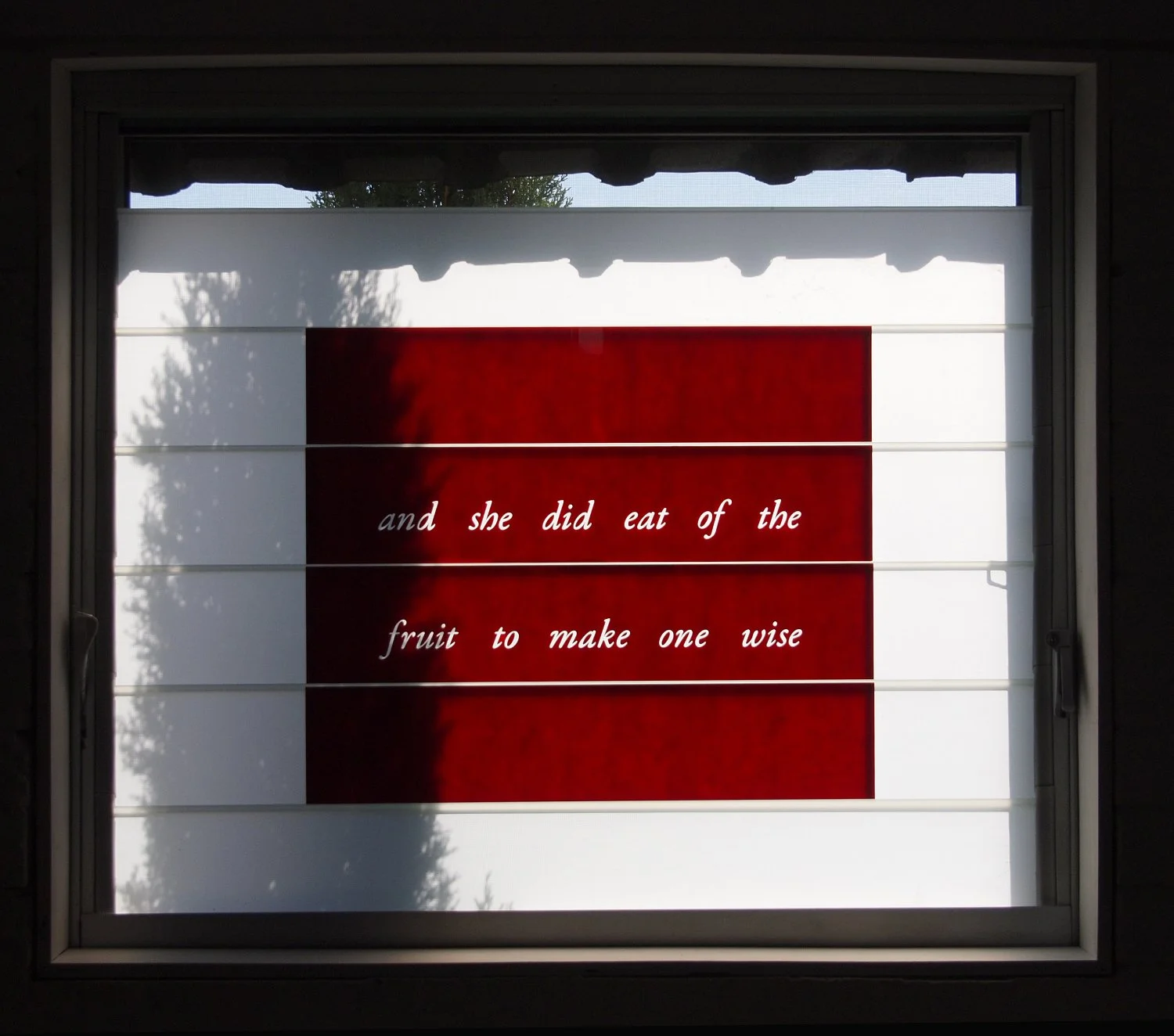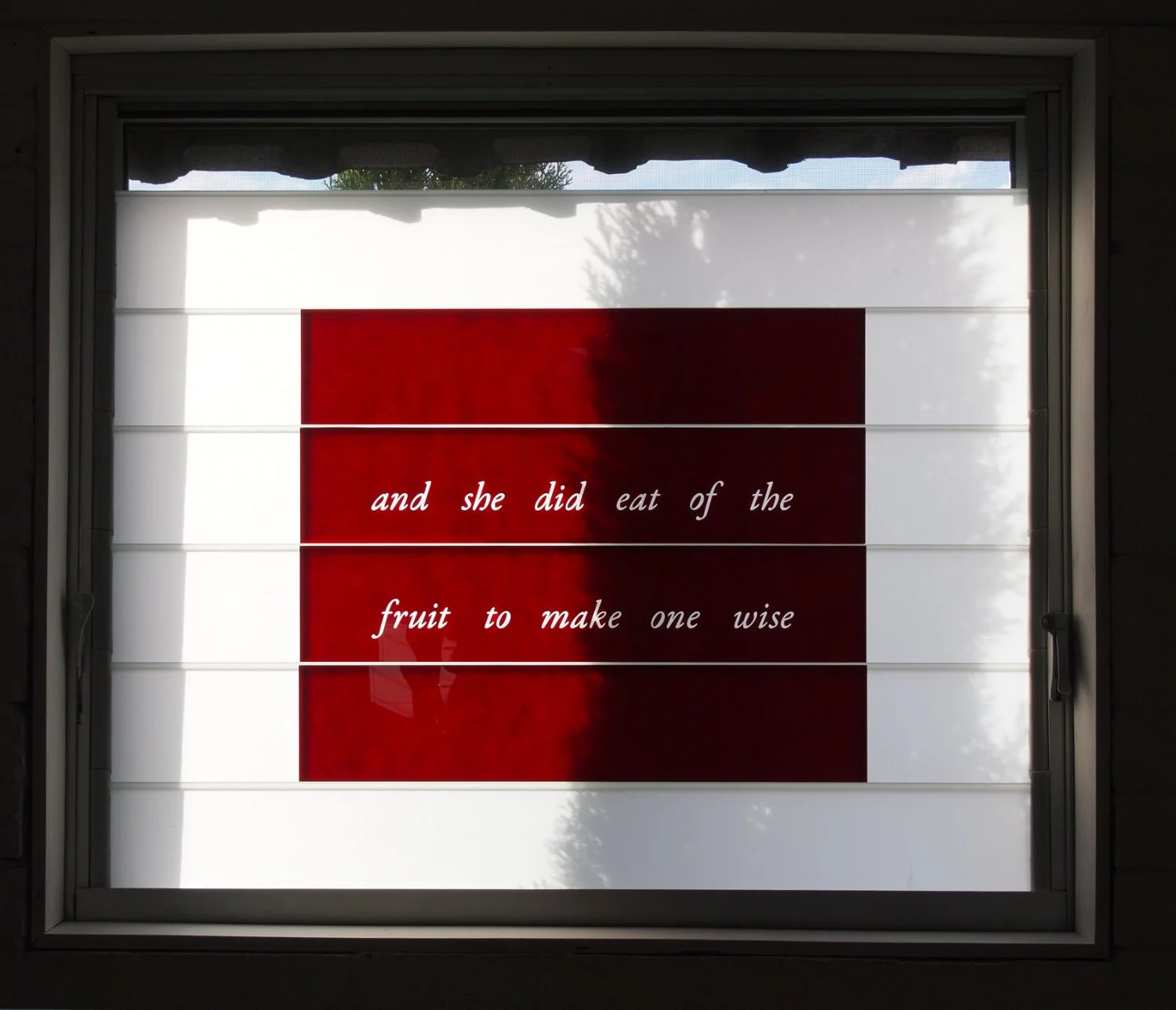We Remember You Beirut
The Beirut terrorist attack Nov. 12, eclipsed by Bataclan Paris attacks Nov. 13, 2015
Lebanese Cedar pod
Searching for Home in The Garden Text: St. James Bible
The shape of Hospitality
First viewing: the door to F49 is closed and a reading is not possible2nd viewing: a reading becomes possible as the door is raised
3rd viewing: unzipping the wordHospitality is, at the moment, one of the most contested of concepts, its meaning contextual, conditional, contingent, constantly shifting, shrouded in uncertainty and in many instances, fear. The word 'hospitality' derived from the Latin hospes/hospis, is an ancient concept. Not only does it mean 'welcome' but it refers to an entire range of interactions that define the relationship between the stranger/guest and host- a giving of shelter, of food, a reciprocal sharing of communication and warmth.
The work presented on the floor at the entrance of Factory 49 does not exist and unless the roller door of the space is raised. When the door is closed the word 'HOSPITALITY' is cut horizontally. On either side shapes appear as hieroglyphics devoid of meaning. Only when the door is raised can the act of reading take place. The placement of the work across the entrance of the art space, proposes the space of art as a potential space of hospitality, of inclusion. The shape of hospitality, in this instance, is physically the shape of Factory 49 inhabited by those present. It includes the act of reading and of crossing an open boundary into a set of conversations and possibilities, into the hospitality of what is being shown and shared.












